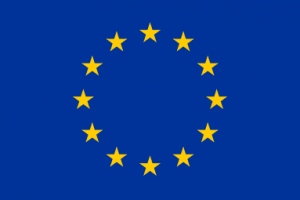“Climate change at the museum” is the activity created by the Oxford team within the FEDORA open schooling project. It consisted of a series of workshops with local secondary schools held at the informal teaching space of Oxford University’s Natural History Museum.
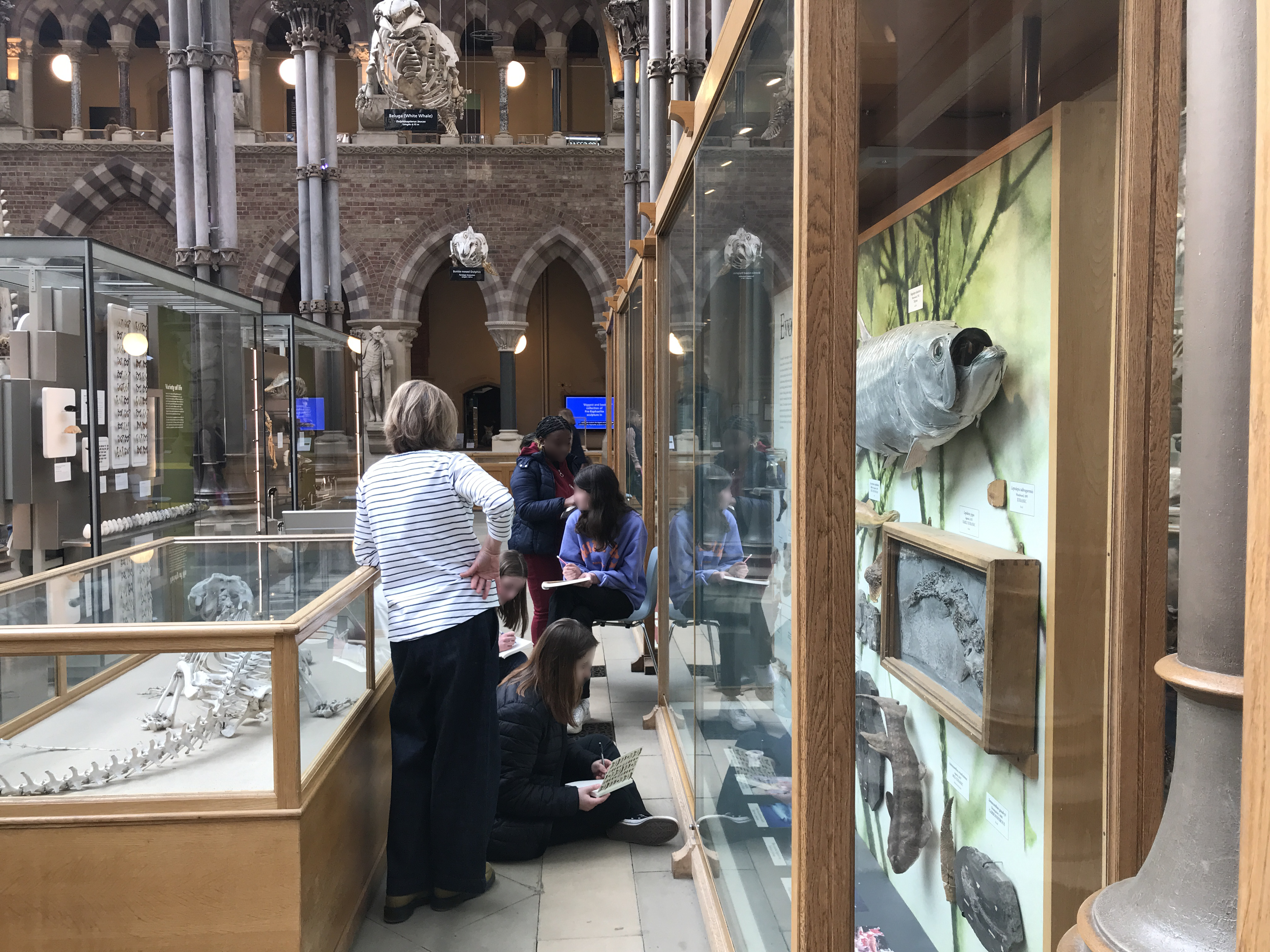
As mentioned in the previous post, at the beginning of its journey FEDORA established three open schooling networks in three specific locations: Bologna, Oxford and Helsinki. Since then, researchers, teachers, communicators, and other professionals worked together at the design of activities and materials based FEDORA's research principles and results. The activities main aim has been to help young students in developing the skills they need to navigate our modern society by engaging them in future-oriented and society-related scientific issues.
Embedding the principles of FEDORA, the Oxford Open Schooling Network created “Climate change at the museum”, a workshop designed for Year 12 students (aged 16-17) and focused on enhancing students’ future-oriented skills, active participation and use of new languages in science learning, and interdisciplinary thinking on the specific topic of Climate Change. A special feature of the implementation is that the science learning space is extended to an informal out-of-school learning context. In collaboration with the Natural History Museum of the University of Oxford, the FEDORA team co-designed and co-delivered the workshops with museum educators.
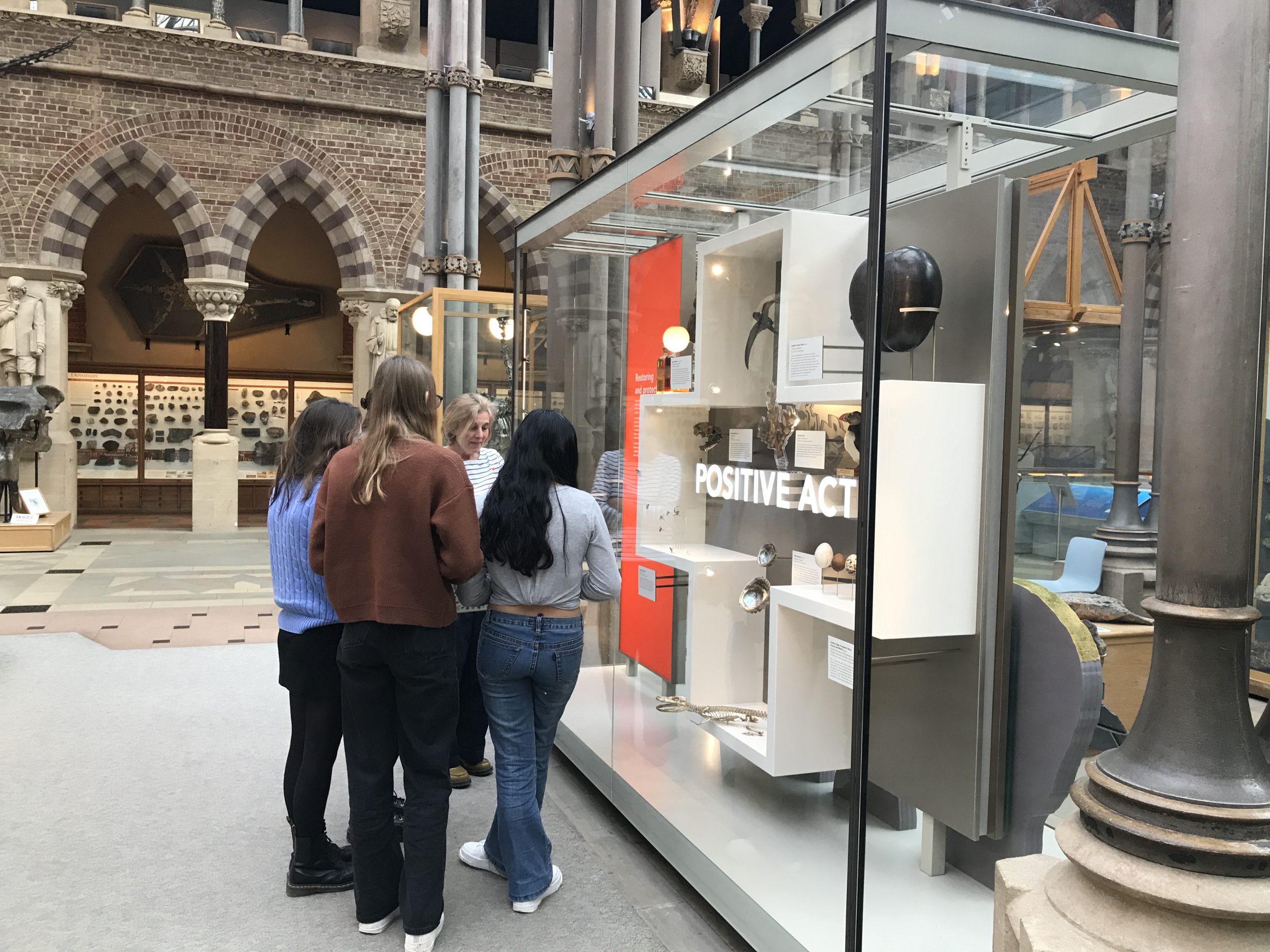 The museum was selected because of its focus and interest in climate change and biodiversity activities, which would serve as the basis of the designed lesson. Students were able to have hands-on experience with the exhibits while also discussing about biodiversity and ecological issues in the museum workshop.
The museum was selected because of its focus and interest in climate change and biodiversity activities, which would serve as the basis of the designed lesson. Students were able to have hands-on experience with the exhibits while also discussing about biodiversity and ecological issues in the museum workshop.
The workshop aimed at guiding students to explore possible future scenarios, emphasising the power of collective and personal actions. Through discussions in small groups and whole class, students related the climate change challenge to the interdisciplinary nature of the topic, so much so in STEM, and how different professional roles contribute to this arena. In this way, students were able to see the interconnections between professions, causes and actions with regard to climate change.
A session of students’ group work followed, during which a set of cards illustrating climate change-related scenarios were introduced. The cards were co-developed with two science teachers and were categorised into ‘positive’ and ‘negative’ or ‘troubled’ future scenarios. This categorisation was based on whether or not actions would be taken to address climate change in the future. During the group discussions, students were encouraged to reflect on the importance of the presented scenarios on a collective, as well as on an individual level.
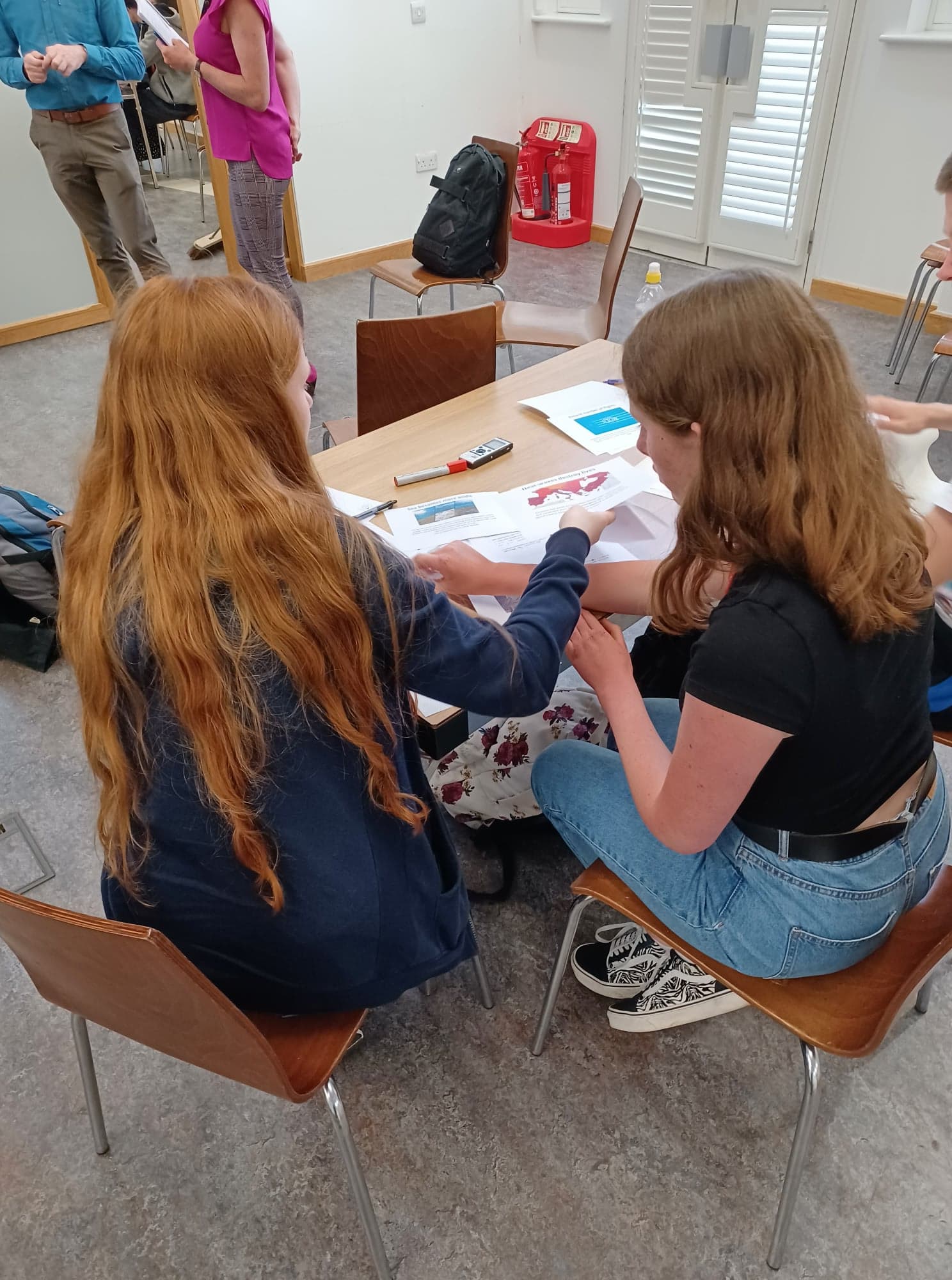
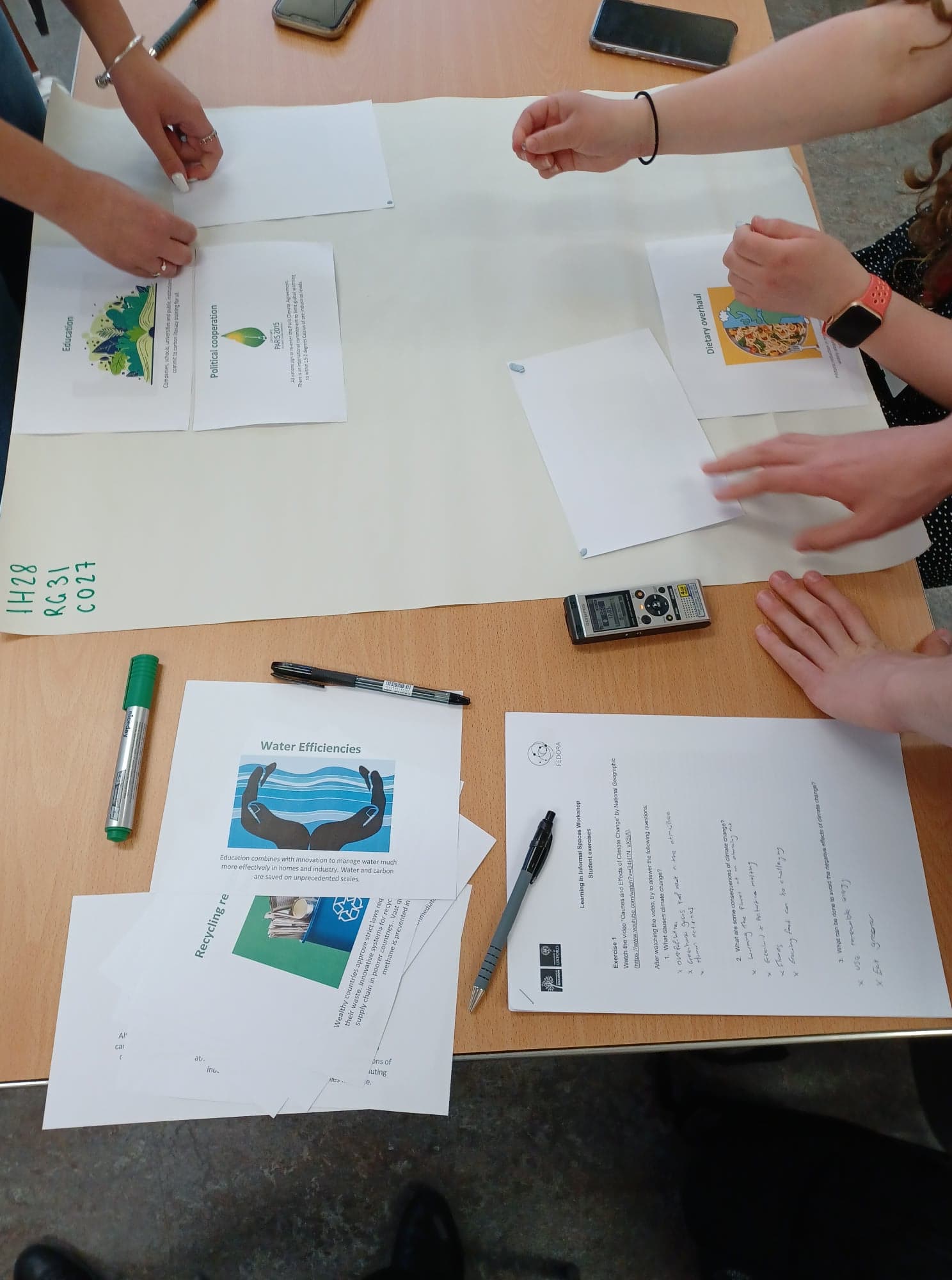 At the end of the workshops, students shared their ideas about possible future scenarios of our climate, the role of science in creating them, and how teenagers and the public can shape this possible future. Students had very positive reflections after each of the workshops. Interviews and feedback from them and their teachers were collected and showed that the workshops raised their interdisciplinary awareness, or as one of the student put it:
At the end of the workshops, students shared their ideas about possible future scenarios of our climate, the role of science in creating them, and how teenagers and the public can shape this possible future. Students had very positive reflections after each of the workshops. Interviews and feedback from them and their teachers were collected and showed that the workshops raised their interdisciplinary awareness, or as one of the student put it:
"I feel environment can come into anything, such as geography and psychology."
At the same time, students' comments showed as this workshop increased their motivation in dealing with future global challenges:
"I really feel, with us being late in our teen years, everything is down to our responsibility to be able to not only act on our own ways to improve, but to also educate other people. I feel programme like this has definitely helped educate a good number of people. I feel I came out of it learning a lot more and I definitely feel changes will probably be made to what I do as a result of it."
"I’m not sure what I’m going to do in the future, but I feel this [the workshop] has made me want to do something in future because obviously my understanding is going strong through the workshop. And I felt like, I could do things to help out."
